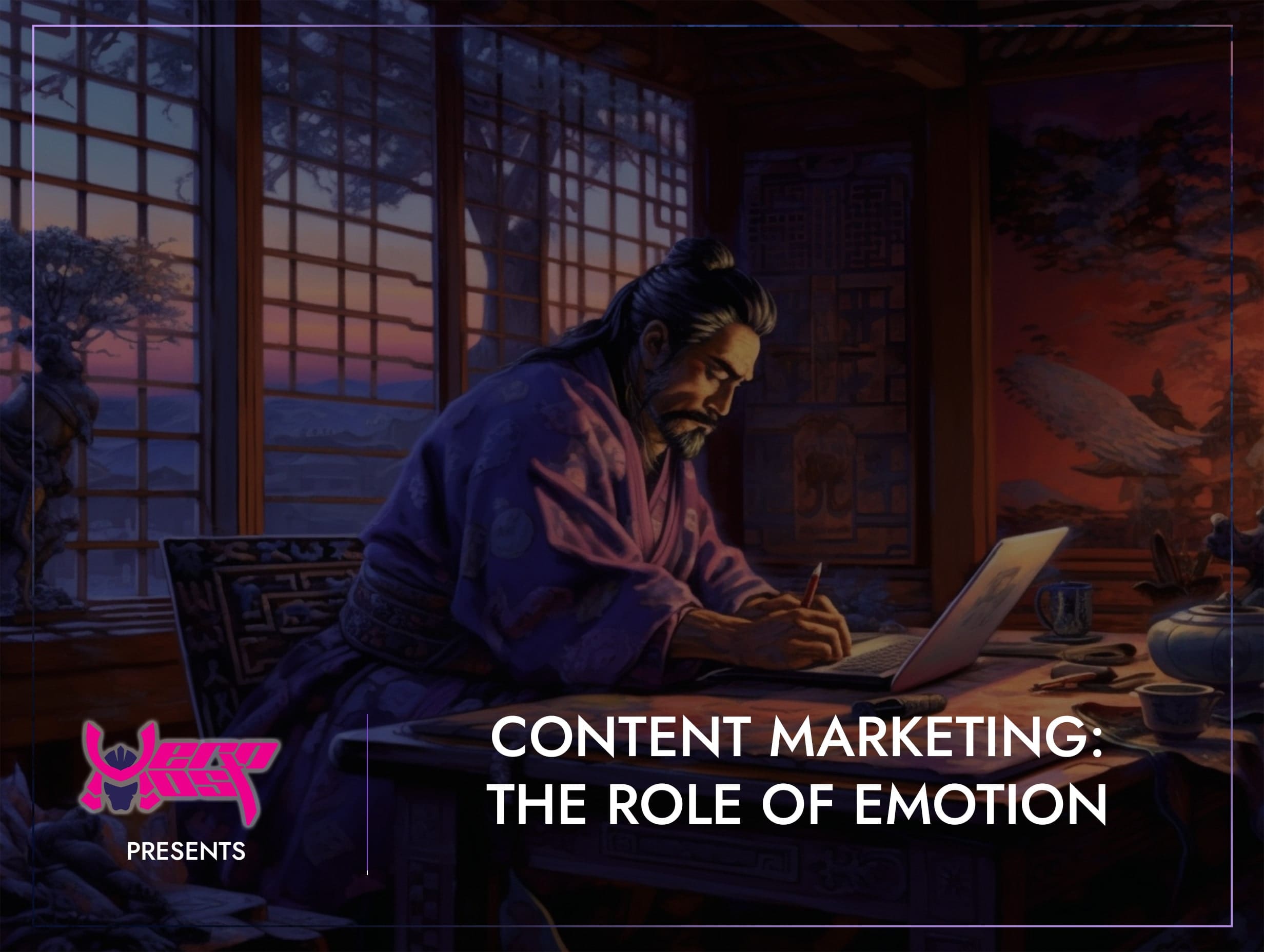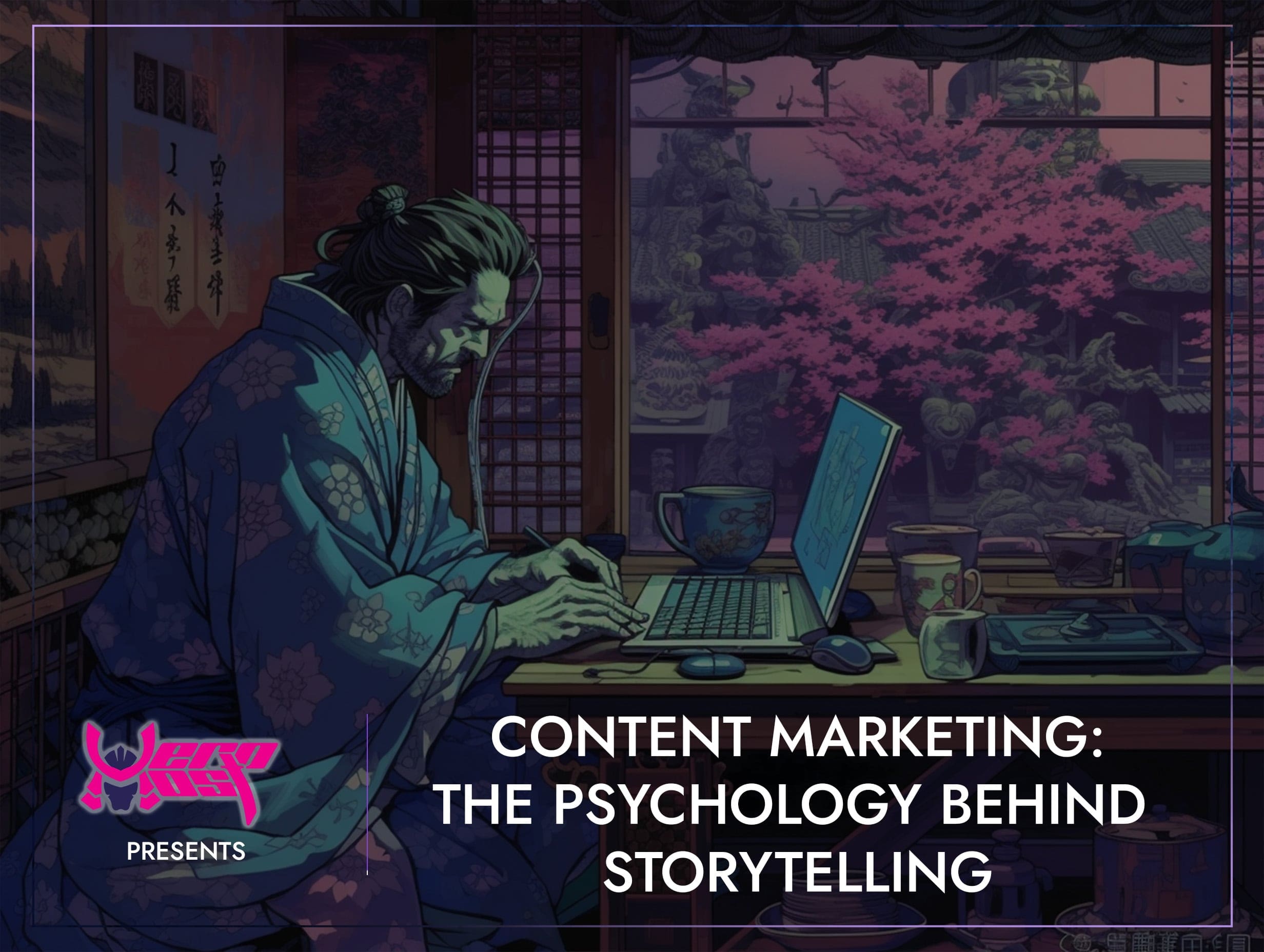Content Marketing: The Role Of Emotion
- Home
- Content Marketing
- Content Marketing: The Role Of Emotion

- Mikey Ryu
- April 25, 2024
- 0
Content Marketing: The Role Of Emotion
In the dynamic realm of content marketing, where brands vie for the fleeting attention of consumers bombarded with an endless stream of information, emotion reigns supreme. Behind every successful content strategy lies a deep understanding of the human psyche and the pivotal role that emotion plays in driving engagement, fostering brand loyalty, and ultimately, influencing purchasing decisions. In this blog, we’ll delve into the multifaceted role of emotion in content marketing, exploring why it matters, how it impacts consumer behaviour, and strategies for leveraging emotion to create compelling narratives that resonate with your audience.
Why Emotion Matters in Content Marketing
Emotion is the currency of human connection. It’s what drives us to laugh, cry, love, and empathize with others. In the context of content marketing, emotion serves as a potent catalyst for capturing attention, evoking empathy, and forging meaningful connections with consumers.
Research has shown that emotions play a central role in decision-making processes, often overshadowing rational considerations. When faced with a purchasing decision, consumers are more likely to be swayed by how a brand makes them feel rather than the features or benefits of a product or service. Emotionally resonant content not only captures attention but also inspires action, whether it’s making a purchase, sharing a piece of content, or advocating for a brand.
The Science Behind Emotional Engagement
Neuroscientific studies have shed light on the neurological mechanisms underlying emotional engagement with content. When we encounter emotionally charged stimuli, our brains release neurotransmitters like dopamine, oxytocin, and serotonin, which are associated with feelings of pleasure, trust, and social bonding. These neurochemicals not only enhance our emotional response to the content but also strengthen our connection to the brand or message being conveyed.
Moreover, emotions have the power to influence our memory and decision-making processes. Content that elicits strong emotional reactions is more likely to be remembered and shared, leading to increased brand awareness and engagement.
Strategies for Leveraging Emotion in Content Marketing
So how can brands harness the power of emotion to create impactful content? Here are some strategies to consider:
Know Your Audience:
Understanding your audience is essential for crafting emotionally resonant content. Conduct research to gain insights into their demographics, interests, and pain points. Tailor your messaging to evoke the emotions that matter most to your target audience.
Tell Compelling Stories:
Storytelling is one of the most effective ways to evoke emotion in content marketing. Craft narratives that tug at the heartstrings, inspire empathy or stir up nostalgia. Use relatable characters, vivid imagery, and powerful metaphors to bring your stories to life.
Appeal to Core Emotions:
Certain emotions are universally understood and experienced across cultures. Tap into these core emotions, such as joy, sadness, fear, anger, and surprise, to create content that resonates with a wide audience. Consider how your product or service can address the underlying emotional needs of your customers.
Use Visuals to Enhance Emotional Impact:
Visual elements such as images, videos, and infographics can amplify the emotional impact of your content. Choose visuals that evoke the desired emotions and complement your storytelling efforts. Incorporate colours, fonts, and design elements that align with your brand’s emotional tone.
Create Interactive Experiences:
Interactive content offers unique opportunities to engage audiences on an emotional level. From quizzes and polls to immersive VR experiences, interactive content invites participation and fosters emotional connection.
Conclusion
In conclusion, emotion is a powerful force in content marketing, shaping how we perceive, engage with, and respond to branded content. By understanding the role of emotion in consumer behaviour and leveraging strategies to evoke the right emotions, brands can create compelling narratives that resonate with their audience on a deep and meaningful level. Whether it’s through storytelling, visual elements, or interactive experiences, emotion serves as the cornerstone of effective content marketing, driving engagement, building brand affinity, and ultimately, driving business success.
Search
Categorys
- Branding (12)
- Business Growth Guides (3)
- Business Insights (3)
- Content Marketing (43)
- Domain Authority (19)
- Email Marketing (28)
- Google Analytics & Search Console (5)
- Hack or Not (2)
- Hero Host News (0)
- Inbound Marketing (32)
- Lessons From Asia (40)
- Marketing Guides (11)
- Martial Arts Journey (14)
- Outbound Marketing (8)
- Search Engine Optimisation (SEO) (41)
- Social Media Marketing (38)
- Web Design (20)
- Website Hosting (4)
- Wordpress (2)






